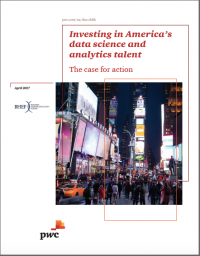
strategy+business, April 17, 2017
by Theodore Kinni
It’s been a long time since I was a wage slave. But if today’s workplace is anything like what Kim Scott describes in Radical Candor, it must be a nightmare. People are picking their noses, stinking up the joint with body odor, and tucking their underwear into the office furniture. They call each other “dumb-a**” and cry a lot. Crying. It sounds like preschool for grownups.
Or maybe that’s just business as usual in Silicon Valley, where Scott, an entrepreneur, executive, and executive coach, spent a decade or so. She ran online sales and service at Google’s AdSense, YouTube, and DoubleClick, where she worked for her Harvard Business School classmate Sheryl Sandberg. Then, she joined Apple University, where she designed and taught a course for first-time managers. With those unimpeachable credentials in hand, Scott struck out on her own, coaching CEOs at Twitter, Dropbox, and Qualtrics. In 2016, she cofounded Candor Inc., a training firm built around the concept of radical candor, which she developed.
Radical candor stems from Scott’s conviction that interpersonal relationships are the currency of management. “They determine whether you can fulfill your three responsibilities as a manager: 1) to create a culture of guidance (praise and criticism) that will keep everyone moving in the right direction; 2) to understand what motivates each person on your team well enough to avoid burnout or boredom and keep the team cohesive; and 3) to drive results collaboratively,” she writes. “If you think that you can do these things without strong relationships, you are kidding yourself”...read the rest of the review here
Thursday, April 20, 2017
Why Managers Can’t Skimp on Radical Candor
Posted by
Theodore Kinni
at
10:03 AM
0
comments
![]()
Labels: bizbook review, corporate life, corporate success, human resources, leadership, management, personal success, work
Friday, April 7, 2017
Investing in America’s Data Science and Analytics Talent
Learned a lot lending an editorial hand on this joint report:

Increasingly US jobs require data science and analytics skills. Can we meet the demand? The current shortage of skills in the national job pool demonstrates that business-as-usual strategies won’t satisfy the growing need. If we are to unlock the promise and potential of data and all the technologies that depend on it, employers and educators will have to transform.
This joint report from BHEF and PwC provides groundbreaking data science and analytics market intelligence informed by a Burning Glass Technologies workforce analysis and real-time survey data of business and higher education leaders from Gallup. The findings of this report document the emergence of the hybrid economy, in which companies in all sectors have become increasingly digital-intensive organizations. It also recommends at eight actions for change to put the supply of skills in balance with the demand.
Posted by
Theodore Kinni
at
10:45 AM
0
comments
![]()
Labels: articles to ponder, corporate success, data science, education, personal success
Subscribe to:
Posts (Atom)














